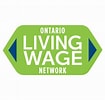With Labour Day in the rear view mirror, and leaves beginning to fall, the change of seasons is definitely upon us. And while summer inexorably leads to fall, some things don’t change, including the way in which the lack of digital literacy keeps marginalized women and girls enchained in poverty. Such women often have specific barriers, including prior educational gaps, language barriers, mental health challenges or cultural expectations and gender biases that mean they haven’t had opportunities to gain adequate – or any – digital literacy skills.
The connection between the lack of digital literacy and poverty is significant and multifaceted. It begins with employment: many job opportunities, especially in the modern economy, are posted online. A lack of digital literacy means that individuals may be unaware of these opportunities or lack the ability to apply for them. Others may want to upskill for better work opportunities, but similarly, many educational resources, including online courses and tutorials, are available only online. Without digital literacy, women may miss out on opportunities to learn new skills or improve existing ones, which are crucial for upward mobility.
Many women dream of being their own boss and digital literacy can open up opportunities for entrepreneurship, such as starting an online business or participating in e-commerce. Without these skills, individuals are less able to participate in the digital economy, limiting their income potential.
A large number of essential services, including government services, banking, and healthcare, are increasingly offered online. Those who lack digital literacy may find it difficult to access these services, leading to social exclusion and reinforcing poverty. In particular, many financial services, including loans, savings accounts, and payment platforms, are moving online. A lack of digital literacy can prevent individuals from accessing these services, which are essential for managing and improving financial well-being.
More fundamentally, the ability to connect with others, whether for personal or professional reasons, is increasingly dependent on digital platforms. Individuals lacking digital literacy may find themselves isolated and unable to leverage social networks for support. And worse yet, individuals with low digital literacy are more susceptible to online scams and fraud, which can exacerbate their financial situation. Both digital literacy (or its lack) and social isolation are also recognized as important social determinants of health.
The lack of digital literacy can perpetuate a cycle of poverty. If parents lack digital literacy, their children may also have limited access to digital resources, hindering their educational and economic opportunities. This leads to an intergenerational impact.
As can be seen, the lack of digital literacy can significantly limit a woman’s ability to participate in the modern economy, access essential services, and improve their socioeconomic status, thereby reinforcing the conditions of poverty.
For more than twenty years, iSisters has made its mission to create and deliver technology programs at no cost to learners as we believe in equipping women with the skills and confidence to participate fully in their community. This fall season, let’s make improving digital literacy rates in our communities a vital priority that we all support.





